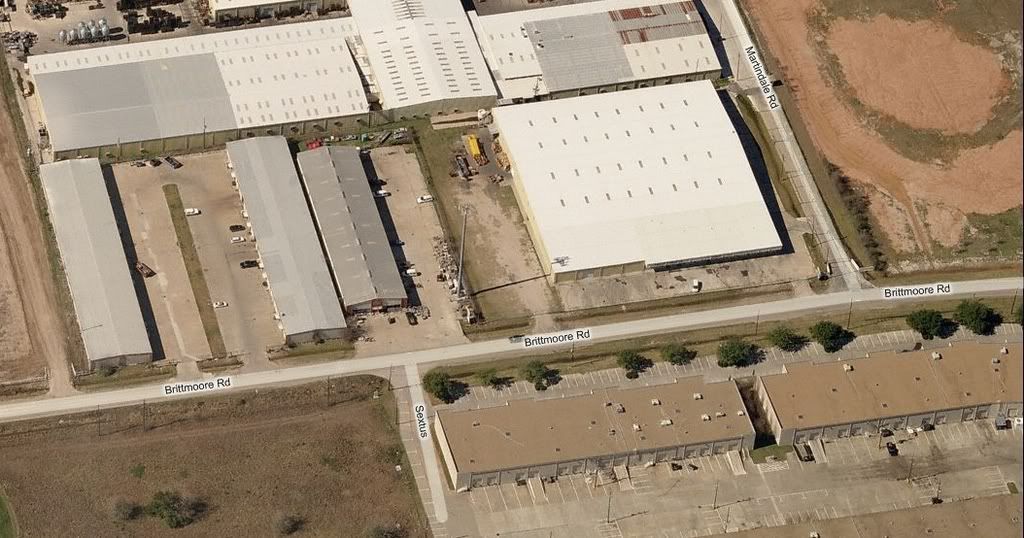One thing I don't understand is why the Democrats are so keen on preventing drilling in ANWR (and the West Coast and East Coast continental shelves). I understand and am sympathetic with the environmental argument. But can that be weighed against 1) $4/gallon gasoline, and 2) huge transfers of the world's wealth into the hands of the dictators, fanatics, thugs, kleptocrats and all-around scumbags who control much of the world's oil? I recognize that ANWR and the continental shelf will probably not change the equation all that much, despite the fevered dreams of various Republican spin-meisters. But why would the Democrats just hand them an issue in what has to be their most important election in over a decade?
Furthermore, it needn't be portrayed as an either/or issue (as it almost always is, when spoken of by politicians). You can have conservation
and ANWR. You can have hydrocarbon production
and investment in alternative energy. Why not?
The Houston Chronicle apparently agrees.
Months ago the climbing cost of energy inconvenienced middle-class commuters. Now it's disrupting entire industries such as the airlines and plastic-makers. No industry that buys its energy wholesale will go unaffected. Because petroleum and natural gas are used to make many manufactured products, inflation threatens. The Federal Reserve Board chairman, Ben Bernanke, warned that interest rates might have to go up to battle inflation, which probably would further dampen economic growth.
Should the price of crude oil climb much past $140 per barrel, global trade would be threatened. High transportation costs would encourage more regional trade, such as between the United States and Latin America.
Already, the high price of crude is transferring trillions of dollars from oil consumers to oil producers, leaving the United States with a ruinous trade deficit and enriching dictators and potentates who don't have Americans' best interests at heart.
Under these circumstances, the United States needs a national policy that requires conservation, encourages the production of more energy — both fossil fuels and clean, renewable alternatives — and limits emissions of gases that contribute to global warming. Unfortunately, when Democrats or Republicans craft legislation to achieve one of these goals, the other party kills it. The parties do this not because they are trying to preserve the nation or improve the lot of its people; they do it in order to advance partisan interests and grasp for power.
Republicans, financed by and friendly with industries that emit tons of carbon dioxide and other pollutants, stand as immovable obstacles to reasonable limits on the emission of greenhouse gases. Democrats thwart opening up the Arctic and offshore waters to responsible, environmentally sensitive drilling that would not only increase the secure, domestic supply of oil and gas, but also place downward force on high prices.
Right on. Usually, I am not opposed to partisanship. I prefer the policies of the parties to be distinct and to offer clear choices. But here, it just seems pointless. The votes that the Democrats have thrown up recently around energy seems especially shameless, designed to merely put Republicans "on record" heading into the elections. I mean, surely they knew that the windfall profits tax would never pass, and even if it had, what would it have accomplished? Not lower energy prices, that's for sure.
That said, I can't say I oppose this measure.
In a bid to force oil companies to drill more on existing oil and gas leases, House Democrats today unveiled a plan that would assess new fees on existing acreage producers may be holding but on which they are not actively working.
With the slogan "use it or lose it," Democrats introduced legislation that would force producers to pay $5 a year for every acre the companies hold but are not working on to produce oil and gas. By the fourth year, the fees would jump to $25 an acre and rise to $50 an acre every year thereafter.
Democrats complain that oil and gas producers keep calling for access to new federal lands but have failed to begin work on existing acreage the Democrats say could yield an estimated 4.8 million barrels of oil and 44.7 billion cubic feet of gas per day.
I'd like to know how these leases really work before giving unqualified support to this measure, but since the government hopes to earn royalties from oil and gas produced on its leases (and that money belongs to us, the citizens of the U.S.), it seems reasonable. To put it another way, if I as a private citizen were negotiating a lease on my property, I might negotiate a similar arrangement. This bill would especially be useful in preventing companies from "parking" on a lease in order to prevent a competitor from getting the lease and benefiting from it. Does this actually happen? I don't know, but it happens in other businesses a lot, and I would be surprised if the oil and gas business was all that different.
If, in fact, E&P companies are not producing all they could on federal lands for which they do have leases, it somewhat weakens the argument for opening ANWR and the continental shelves. Even so, I think those locations should be open to E&P, as long as environmental standards are reasonably strict and properly enforced, and collection of royalties is likewise strictly enforced.
Labels: oil


 This is, I believe, Greens Bayou. I took this shot from the fifth floor of a parking garage, just south of the North Sam Houston Parkway. It's amazing that there would be such beautiful undeveloped land inside the beltway. But really, if you look at a map of Houston, there are curious blank spaces all over it (few as lovely as this, no doubt). So why does development gravitate to places like Katy and far northern burbs like Kingwood and beyond? I dunno.
This is, I believe, Greens Bayou. I took this shot from the fifth floor of a parking garage, just south of the North Sam Houston Parkway. It's amazing that there would be such beautiful undeveloped land inside the beltway. But really, if you look at a map of Houston, there are curious blank spaces all over it (few as lovely as this, no doubt). So why does development gravitate to places like Katy and far northern burbs like Kingwood and beyond? I dunno.









